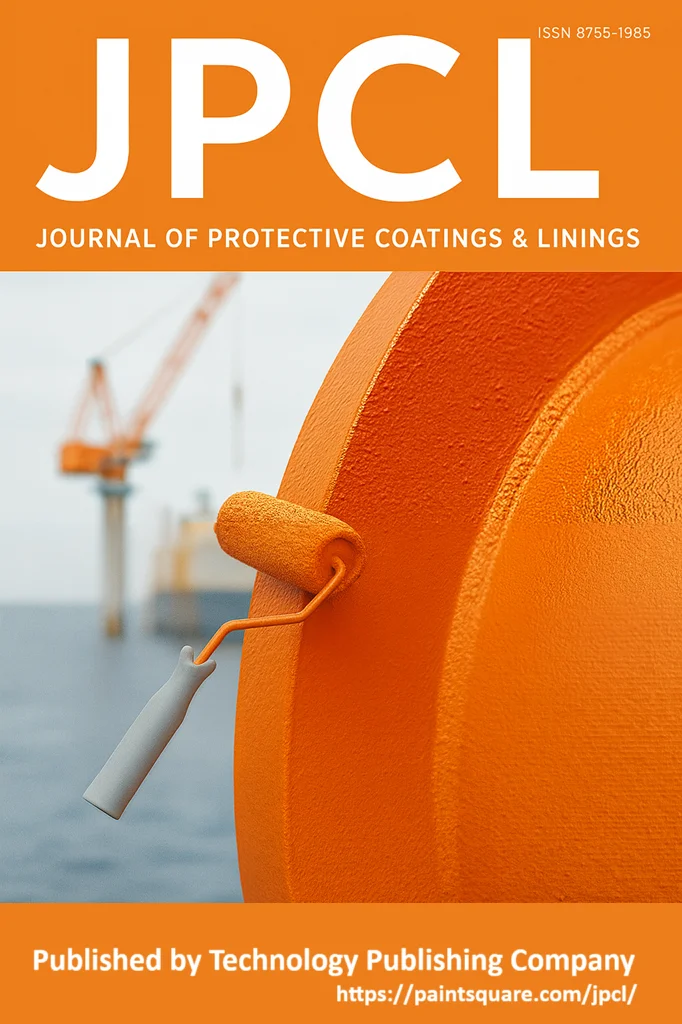Guidelines for Reviewers
We extend our sincere appreciation to all scholars who contribute their expertise to peer reviewing submissions for the Journal of Protective Coatings & Linings (JPCL). A rigorous, fair, and constructive peer review process is vital to ensuring the scientific excellence and integrity of our journal.
1. The Peer Review Process
Peer review is central to maintaining the high standards of JPCL. Every manuscript submitted is subject to a multi-stage evaluation:
Upon submission, the Managing Editor/Handling Editor conducts an initial technical assessment, ensuring compliance with journal guidelines, ethical requirements, and basic scientific standards.
An academic editor (usually the Editor-in-Chief or an Editorial Board member) reviews the submission for scope, relevance, and scientific merit, and identifies potential reviewers.
Suitable manuscripts are sent to at least two independent expert reviewers. Reviews are single-blind by default; reviewers remain anonymous to authors, but not vice versa. In select cases, a double-blind review may be employed.
Editors make decisions based on reviewer recommendations. Authors may be asked to revise their manuscripts or provide additional clarification. The final publication decision rests with the editorial team.
2. Reviewer Qualifications and Responsibilities
Reviewers play a crucial role in safeguarding the integrity of the scientific record. We ask reviewers to:
Be independent of the authors, with no conflicts of interest (including personal, academic, or financial ties).
Not share institutional affiliation with the authors.
Not have co-authored publications with the authors within the last three years.
Hold a PhD (or equivalent doctorate) in a relevant discipline.
Possess recognized academic credentials and a track record of scholarly publications in the field.
By accepting a review invitation, reviewers agree to:
Critically and fairly assess the manuscript’s scientific quality, novelty, and relevance.
Deliver thoughtful, constructive, and timely feedback.
Adhere to professional and ethical standards at all times, as outlined by the Committee on Publication Ethics (COPE).
3. Accepting and Conducting Reviews
Please accept or decline review invitations promptly. If declining, consider suggesting qualified alternative reviewers.
If you anticipate needing extra time to complete your review, notify the editorial office as soon as possible.
Declare any potential conflicts of interest immediately; if in doubt, consult with the editorial office before proceeding.
Confidentiality:
All submissions and associated data are strictly confidential and must not be shared or discussed outside the peer review process. Do not use or disclose manuscript content before publication. If you need to consult a colleague, please inform the editorial office first and ensure they meet all reviewer criteria.
4. Preparing Your Review Report
Read the entire manuscript, including all figures, tables, and supplementary materials.
Critically evaluate each section, including the abstract, introduction, methods, results, discussion, and references.
Structure your review to include:
Briefly restate the aims, methods, and key findings of the paper.
Assess the overall quality, clarity, scientific rigor, and relevance to the journal’s audience.
Refer to particular lines, figures, tables, or methodological issues; provide clear, actionable suggestions for improvement.
Suggest improvements or corrections where needed. Maintain a constructive, professional, and impartial tone.
Key Points for Consideration:
Is the research novel and does it advance the field?
Are the hypotheses and objectives clearly defined?
Are the methods sound and sufficiently detailed for replication?
Are results well presented and statistically sound?
Do the conclusions follow logically from the results?
Is the English language clear and professional?
Are ethical guidelines, data availability, and proper attribution adhered to?
Please avoid:
Recommending unnecessary citations, especially to your own work or the journal itself.
Using AI or large language models to process or analyze manuscript content (unless explicitly disclosed and only for grammar/style).
Including derogatory or non-constructive remarks.
5. Rating and Recommendation
At the end of your review, select one of the following recommendations:
Accept: The manuscript is suitable for publication as is.
Minor Revision: Requires only minor adjustments; recommend acceptance after revision.
Major Revision: Substantial changes needed; further peer review may be required after revision.
Reject: Serious flaws or lack of originality; not suitable for publication.
Your recommendation and detailed feedback will guide the editors and assist the authors in improving their work. Your recommendation remains confidential and is not shared directly with authors.
6. Ethics, Standards, and Confidentiality
JPCL strictly adheres to international publication ethics and expects reviewers to do the same. Please:
Report any suspected misconduct (plagiarism, data fabrication, unethical research, etc.) to the editorial office.
Treat all submissions with the utmost confidentiality and integrity.
Avoid using privileged information for personal or professional gain.
7. Recognition and ORCID
We value and recognize the essential contribution of our reviewers. Reviewers may choose to record their review activities on their ORCID profile by connecting with our manuscript system.
